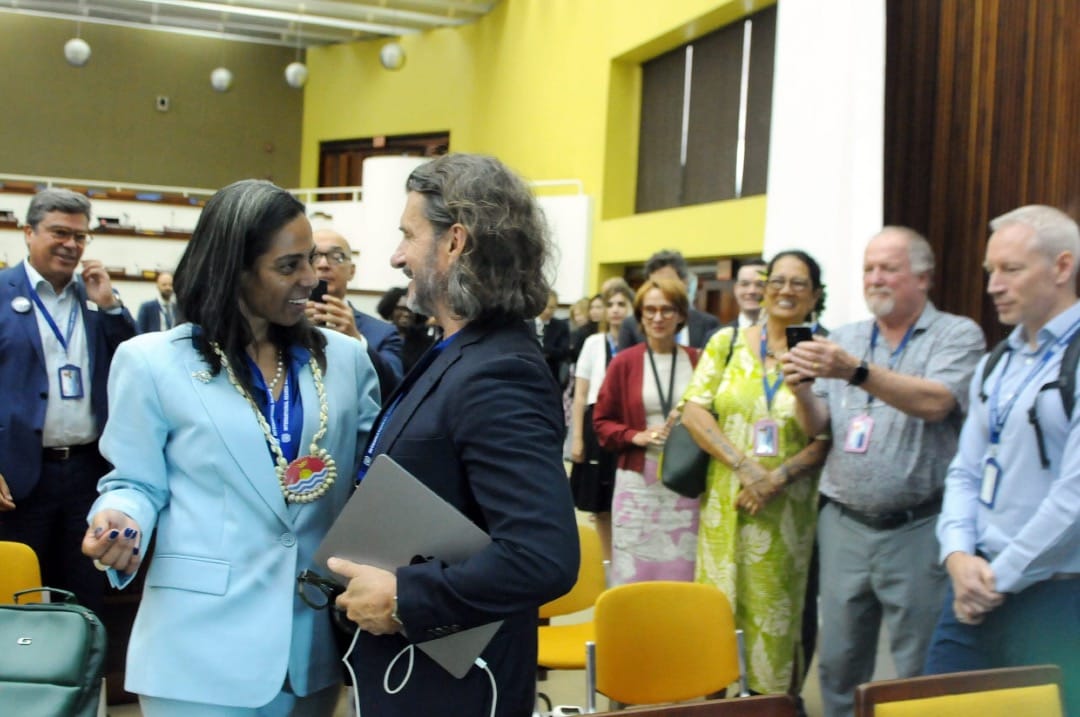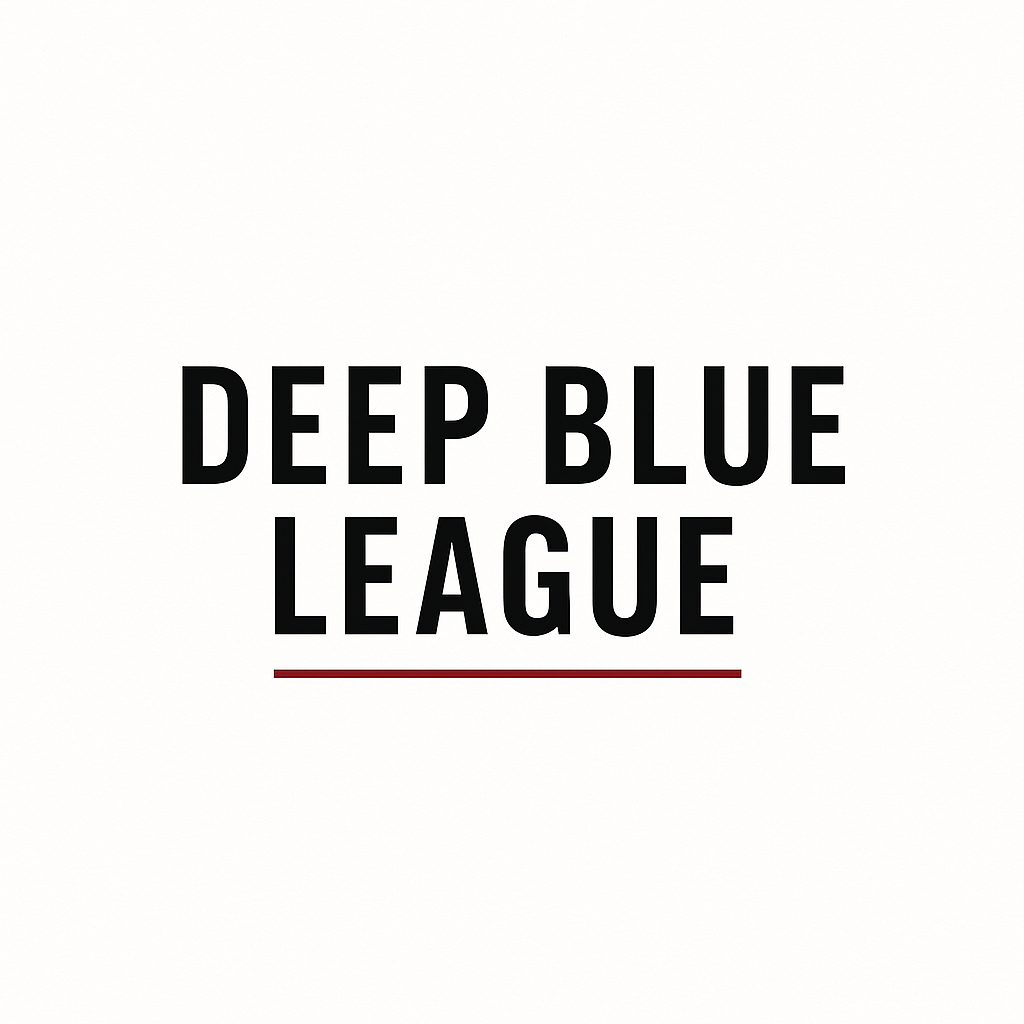The Metals Company fully abandons plan for deep sea mining licence through International Seabed Authority
The Metals Company will not seek a commercial recovery licence from the ISA but will seek to maintain its exploration rights through its two subsidiaries. But has it left Nauru and Tonga out in the financial cold?

The Metals Company (TMC) has announced that it will no longer pursue an exploitation licence to recover deep sea minerals through the International Seabed Authority, ISA.
TMC has two exploration contracts through its Nauru and Tonga subsidiaries at the ISA and was expected to convert those into exploitation licences this June, in parallel with its application for a commercial licence through the United States.
However CEO Gerard Barron put that to bed at TMC's Q1 Corporate Update Conference Call a few hours ago:
We're not applying to the ISA, we're only going to be applying to NOAA [The National Oceanic and Atmospheric Administration].
He was responding to a question on whether there would be overlap when the ISA finally completes its mining code, which has been lagging for years in fraught discussions at the UN body. The new Secretary General, Leticia Carvalho, has said it will be completed this year.
CFO Craig Shesky also followed that up:
"We wouldn’t want a situation where the complication of having to consider permitting over the same area from two regimes"
ISA exploration contracts
However, TMC said it would seek to maintain its exploration licences through the ISA, as there would be no reason to give those up before any commercial recovery permit of the same area is granted.
The Nori licence comes up for renewal next year. We’ll be renewing that because NORI is in full compliance. There’s no legal basis on which that licence cannot be renewed and the basis that we would...uh...the fact that we’re putting in application through our US subsidiary has no bearing on the renewal. So we’re covering all bases.
Exploration licences allow for testing in an area of the high seas, but not actual commercial mining.
TMC holds two exploration licences through the ISA for roughly 150 million square kilometres worth of seabed in the Clarion Clipperton Zone (CCZ) of the Pacific Ocean through its Nauru sponsored subsidiary, NORI, and its Tonga sponsored subsidiary, TOML.
How will TMC's decision affect Nauru and Tonga?
The company has not said how the decision to not seek a commercial licence though the ISA will affect Nauru and Tonga, who are both sponsoring states for TMC 's activities through the ISA and were expected to benefit financially from future commercial licences.
However, Barron told investors in his closing remarks:
They entered into agreements with us in 2011 in the case of Nauru and 2012 in the case of Tonga and of course they did so in good faith under the protection of UNCLOS. Unfortunately the commitments they depended upon have not been fulfilled and yet they remain tremendously supportive and we will ensure always that their best interests are protected as we move forward so I’d like to especially thank them for their never ending support.
Deep Blue League sought to ascertain how the move would affect any actual financial arrangements with Nauru or Tonga but the question was not picked up for a response by the conference call moderator.
Previous filings with the U.S. Securities and Exchange Commission (SEC) disclosed that under a formalised sponsorship agreement in 2017 between NORI, the Government of Nauru, and the Nauru Seabed Minerals Authority, TMC was obligated to pay Nauru a seabed mineral recovery fee based on the volume of poly-metallic nodules extracted, once a minimum recovery threshold is reached.
It was also expected to pay an annual administration fee for sponsorship and associated services, subject to adjustment following the granting of an exploitation contract.
It was through its ISA contract with Nauru that TMC has conducted test recoveries, environmental impact assessments, and applied pressure on the ISA to finalise the mining regulations.
The Nauru partnership has also played a role in facilitating social impact and cultural heritage assessments as part of the company’s pre-exploitation preparations.
These activities are all instrumental to the commercial licence it now seeks.
Will TMC's licences through NOAA overlap with any ISA licensed areas?
TMC's US-based applications include an exploitation licence and additional exploration licences covering areas of the CCZ already known to the company.
There is an additional area outside of its current exploratory zone added to the list under review by NOAA.
However Barron sought to reassure that the new area does not overlap with any of the seabed licences held by other countries through the ISA.
We haven't released a map of the exact area yet- we will very soon. But the additional area is very complimentary to the NORI and TOML ground - it is area not claimed by any other sovereign. We feel that's important - while there is ability to lay claim over ground that is currently under licence through the ISA by other countries, we made a deliberate plan not to do that. We have support of Tonga and Nauru in our efforts. But we wanted to make sure any additional ground that we did apply for would not have a competing claim over it. So, I can’t tell you specifically where but it makes a beautiful mining unit, and I can’t wait to share more detail on it.
TMC says it is holding back on revealing the specific area of the CCZ due to commercial sensitivity but is "chomping at the bit" to do so once NOAA has done the initial review.
It also sought to reassure that the area is "not an Area of Particular Environmental Interest [APEI] either" .
On whether there is legal and jurisdictional overlap, CFO Craig Shesky told investors on the call that that was the wrong framing of the issue:
The US isn't claiming any ground in international waters. This is not a question of overlap. Through DSHMRA and NOAA regulations, the US is merely regulating the free activities of its citizens in international waters in accordance with any law that would apply to its citizens under freedom of the high seas. Just as it would apply to someone on a fishing boat.
While the US does voluntarily abide by certain aspects of UNCLOS, it has never contradicted its original understanding of deep sea mining as a freedom of the high seas.
ISA versus NOAA
As TMC waits to hear from NOAA by end of June on whether its application meets the basic compliance test before being fully reviewed, the TMC CEO was full of praise about dealing with the Americans.
It's refreshing to work with a regulator that's transparent, flexible, supportive and even enthusiastic...
Barron also took direct aim at the ISA whilst claiming the move had lit a fire under the UN regulator:
What we’re hearing is that there is action. What we are hearing is that people understand that this has been shining a spotlight on the fact that the regulator had an obligation and hasn’t met its obligation. And I think if you listen to some of the comments that have been made by the SG [ISA Secretary General] while they’re a little bit speculative, I would suggest what they do highlight is urgency. And what we hear discreetly from some of the member nations is that there seems to be momentum. Now of course, our decision is made, we are moving in this direction. But I hope for the other member nations who relied on UNCLOS and who have been acting in good faith by turning up and carrying out all of this research work to further their license ground, I hope for their sake that the regulator can agree a set of terms for the mining code and join us out there.
The opportunity to ditch the ISA and put all its deep sea mining hopes into the American system is a direct result of Donald Trump's executive order in April which sought to expedite licences for the activity, in an attempt to secure critical minerals for US manufacturers and reduce dependence on China.
The ISA Secretary General has since condemned the move as a breach of international law.
Up next: The company's update on its pre-feasibility study and Q1 financial results.
For editorial comments or questions: [email protected]

